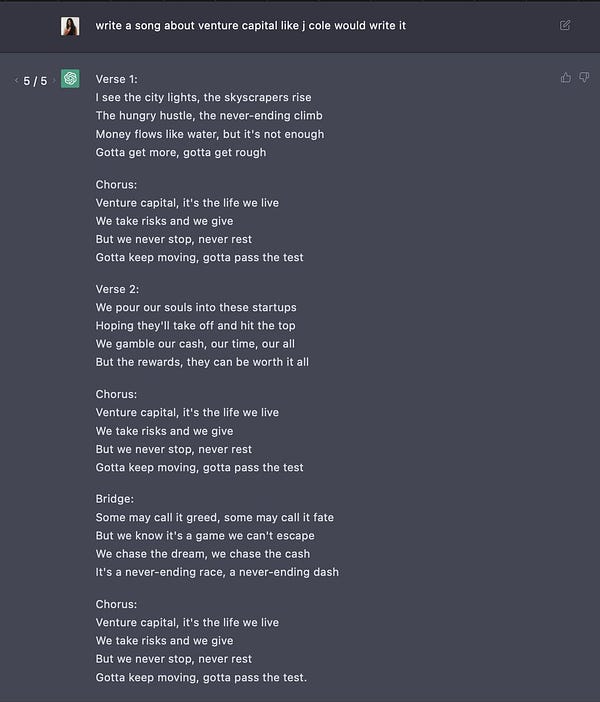Moneyball is a fortnightly newsletter from Koble exploring the limitations of human decision-making and their implications for startup investing.
At Koble we’ve spent two years developing groundbreaking algorithms which discover early-stage startups that outperform the market and predict their probability of success.
This week
🧠 Mental model #6 – Status Quo Bias – The risk & reward of doing nothing
📖 Investor reading – Long live the vibe capitalist! – FTX Benefited From Venture Capitalists’ Suspension of Disbelief – The (worrying) State of European Tech in 2022
💬 Some tweets – Your favourite podcast – A song about venture capital – Make stuff, see what happens
Koble update
We’re delighted to announce that Koble has raised £1 million in pre-seed capital to re-engineer startup investing with AI.
The round was led by leading venture capital firms Pitchdrive and Modus, with participation from a group of prominent angels dedicated to exploring the disruptive potential of AI in startup investing.
Proceeds will be used to further develop our groundbreaking algorithms and technology platform, which identifies early-stage investments that outperform the market, mitigating human bias and capturing sustainable alpha for investors.
The risk and reward of doing nothing
Status Quo is more than a British band that wrote massively popular (and somewhat repetitive) rock songs before the dawn of the Internet Age.
It’s a way of thinking about action, inertia, and the cost of doing nothing.
We’re talking about Status Quo Bias – a mental model that helps explain how founders can disrupt seemingly impenetrable industries with help from visionary investors.
When faced with a decision, people tend to go with the default option.
In his book “Predictably Irrational”, Dan Ariely outlines a neat example of Status Quo Bias. He notes that demographically similar pairs of countries have very different levels of organ donation, caused by basic differences in the way that medical forms are designed (opt-in/out).
Subscription businesses know this, and they’ve become adept at designing choice architecture, locking consumers into recurring payments by creating default options that promote renewals over cancellations.
In his masterpiece of a book Seeking Wisdom, Peter Bevelin observes that:
“We prefer to keep things the way they are. We resist change and prefer effort minimization. We favour routine behaviour over innovative behaviour.”
He goes on to speculate as to why this is so:
“We are more bothered by harm that comes from action than harm that comes from inaction.”
The net result of this loss aversion is that we spend most of our lives on autopilot, enacting beliefs and behaviours opted-in to at some point in the past. One decision leads to countless more, perpetuating sameness and creating a kind of behavioural inertia that is hard to escape.
This has consequences for human progress. As Warren Buffet has observed:
“If horses had controlled investment decisions, there would be no auto industry.”
Seen in this light, change is good, and Status Quo Bias is just plain bad. Something to be mitigated, perhaps even eliminated entirely.
But our in-built Status Quo Bias has its uses.
And managed effectively, it can be a powerful ally. By perpetuating orthodoxy, it helps to protect us from the dark side of disruption. It’s why our relationships, careers, health, and other prized assets remain stable and productive.
Loss aversion is part of the human operating system, an irresistible, adaptive evolutionary force that keeps us fed, watered, and sheltered from the chaos of the universe.
Sometimes the switching costs are just too great. We don’t need to reinvent the wheel every decade, because the wheel works very well.
And perhaps a billionaire crypto founder playing League Of Legends on a call with investors isn’t a sign of uncompromising heterodoxy, but a red flag?
Implications for investors
Status quo bias is a tough thing for investors.
Too much of it results in me-too investment theses, FOMO-driven decisions, a culture of loss aversion, and general groupthink amongst the VC community.
Too little of it results in cavalier risk-taking (often framed as regret minimisation) and gut feel decisions that can look very ugly in hindsight.
The answer, however boring it might sound, lies in balance. And mindfulness. By becoming more mindful about what we do and why we do it, we can better understand if our affinity for defaultism is helping or hindering us.
There are several ways we can implement this:
We can seek to unbundle our beliefs and behaviors into their underlying components to see them in new ways (disaggregation);
We can flip things in our heads and visualise how alternatives to default options might play out (inversion);
And we can revisit our culture, creating an environment for testing conventional beliefs and hopefully, improving our performance.
Venture Capital is an industry that’s packaged up contrarianism and sold it – to allocators, founders, journalists, even itself. But in reality, startup investing is governed by groupthink. And that’s dangerous.
Peter Thiel has observed:
“The most contrarian thing of all is not to oppose the crowd but to think for yourself.”
Status Quo Bias and its equally dangerous sibling – interventionism – cannot and should not be eliminated. Instead, it is to be interrogated, tested, managed.
Herein lies the fun of startup investing – and the richness of life.
Work with Koble
We’ve spent two years developing groundbreaking algorithms which discover early-stage startups that outperform the market and predict their probability of success.
We’re working with forward-thinking angels, VCs, family offices, and hedge funds to re-engineer startup investing with AI. If that resonates, get in touch.
Investor reading
✌️ Long live the vibe capitalist! – People are led to believe that investors are clear-eyed, data-driven people who explore the financials of the companies they invest in. Well, not exactly.
😬 FTX Benefited From Venture Capitalists’ Suspension of Disbelief – The industry and other sophisticated investors provided the funding, approval, and lack of scrutiny that allowed Bankman-Fried’s empire to flourish.
🇪🇺 The (worrying) State of European Tech in 2022 – Atomico has launched its latest “State of European Tech” report, and it makes for interesting reading.
Some tweets
Parting shot
“Wealth consists not in having great possessions, but in having few wants.”
– Epictetus
Wishing you a very happy holidays and a strong start to 2023,
About Koble
Koble is re-engineering startup investing with AI, applying quantitative strategies that have disrupted public markets to early-stage startup investing.








